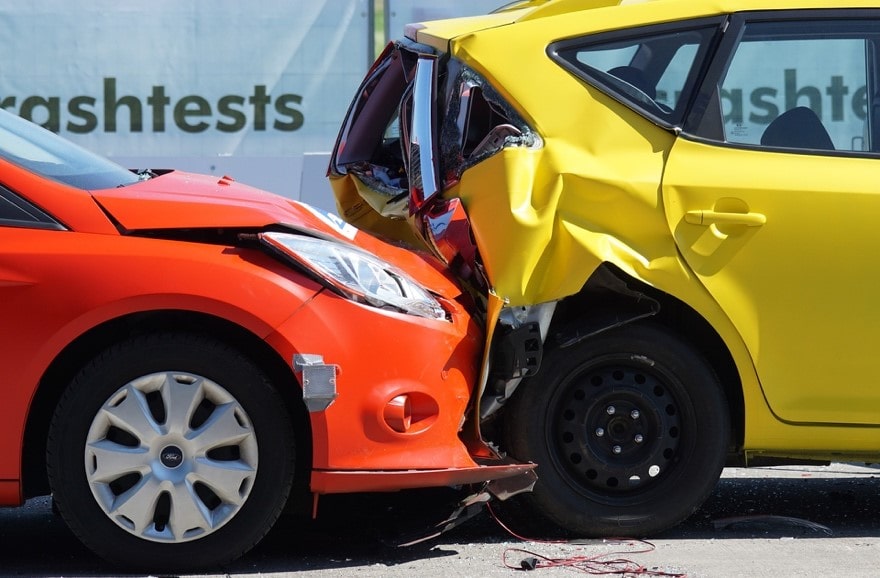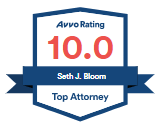Does Uber and Lyft Insurance Coverage Protect Passengers but Leave Drivers Out to Dry?
 The short answer is yes. Uber and Lyft have insurance that covers drivers, passengers and third-parties. Both rideshare companies offer different levels of coverage when a driver is waiting for a fare, on the way to pick up a ride or actively transporting a paying passenger. Neither company provides any insurance protection unless a driver has logged on to the app and indicated they are available to accept rides. As a general rule, Uber and Lyft provide far more generous insurance coverage to passengers and third-parties than their own drivers.
The short answer is yes. Uber and Lyft have insurance that covers drivers, passengers and third-parties. Both rideshare companies offer different levels of coverage when a driver is waiting for a fare, on the way to pick up a ride or actively transporting a paying passenger. Neither company provides any insurance protection unless a driver has logged on to the app and indicated they are available to accept rides. As a general rule, Uber and Lyft provide far more generous insurance coverage to passengers and third-parties than their own drivers.
What’s covered when a driver is waiting for a fare?
Both Uber and Lyft cover third-parties injured when a driver is waiting for a fare. Drivers are not protected by either companies’ insurance when logged on to the app and waiting to accept a ride.
Here’s an example. Let’s say that Dave, a Lyft driver, is zooming around the city waiting for a fare. He’s logged on to the app, but hasn’t yet accepted a ride. While attempting to make a right-hand turn, Dave bangs into Margaret’s car.
Lyft’s accident coverage would reimburse Margaret for any injuries or property damage caused by the accident. Lyft and Uber offer similar third-party coverage in these situations. Both would pay up to $50,000 to compensate Margaret for any injuries and up to $25,000 for any property damage. Both Uber and Lyft cap their third-party coverage at $100,000.
Dave would be responsible for all repairs to his own vehicle and any medical bills he incurred. And, in most cases, the rideshare companies’ insurance would only kick in as a backstop to the driver’s personal insurance policy.
What about after a driver accepts a ride?
Higher coverage kicks in as soon as a driver accepts a ride request — at this point, both Uber and Lyft have insurance that protects drivers and third-parties. It also extends to passengers after pickup.
Here’s an example. Becca, an Uber driver, is on her way to pick up Martin when she plows into Carmen, who’s driving an old Volvo.
Uber’s accident coverage would provide up to $1 million in third-party liability insurance that would pay for Carmen’s injuries and the cost to repair or replace her Volvo.
If Becca has a valid personal collision and comprehensive plan, Uber’s insurance coverage would kick in and cover any damages to Becca’s vehicle. If she doesn’t have her own personal comprehensive and collision coverage, Becca won’t receive reimbursement from Uber for the cost of repairing or replacing her car. Becca would also have to pay for her own medical bills.
Both companies offer similar coverage levels and will compensate properly personally-insured drivers up to the cash value of their vehicle (or the cost to get things fixed).
What about if the Uber or Lyft driver has a ride in the car?
Both Uber and Lyft offer third-party as well as collision and comprehensive coverage that applies after a driver picks up a paying passenger.
Here’s another example.
Janet, a Lyft driver, picks up Frank. She’s driving him home from work when she runs into Sue, who’s behind the wheel of a brand new McLaren. Both vehicles are totaled.
Lyft’s insurance would cover injuries to both Frank and Sue. It would also pay for damages or the replacement of Sue’s car. All of this would be covered by the $1 million third-party liability insurance the company carries.
Janet has less protection. Lyft’s collision and comprehensive insurance would pay for repairs to Janet’s vehicle. But this will only apply if Janet has her own personal comprehensive and collision policy. If she doesn’t, Lyft won’t reimburse Janet for any costs associated with fixing or replacing her vehicle.
And Janet would be on the hook for any medical costs she incurs as a result of the accident.
But there’s more. Let’s say that Frank’s leg was seriously injured in the accident. He ended up spending four months in intensive care after undergoing a series of surgeries to save his leg. His medical bills reached close to $4 million. Sue also required surgery — the accident severed all the tendons in her shoulder. And she also racked up a nice bill emergency room bill. Her medical bills ended up coming to $1 million. And then there’s the issue of Sue’s car. Her brand new $500,000 vehicle was totaled.
Lyft’s insurance would provide $1 million in third-party liability insurance to cover Frank and Sue’s injuries and property damage. But Janet would still be on the hook for $4.5 million — most of Frank and all of Sue’s costs—because of Lyft’s $1 million per incident coverage limit.
Both rideshare companies offer similar coverage levels after a driver picks up a paying passenger.
What about if someone hits a rideshare driver?
Both Uber and Lyft have uninsured and underinsured motorist coverage that protects drivers as soon as they accept a ride. It also covers passengers once they enter the rideshare vehicle. This coverage only applies if a driver is in an accident with someone who doesn’t have insurance, and it only provides reimbursement for injuries. It comes into play when the rideshare driver is not at fault. The limit is $1 million per incident.
Here’s an example.
George, an uninsured motorist, plows into Dave, an Uber driver. Dave picked up Karen minutes before the accident. Both Dave and Karen were injured, and Dave’s car was totaled. Uber’s uninsured motorist insurance would pay for Dave and Karen’s injuries. The amount of coverage provided by the rideshare companies’ insurance varies by state.
Neither Uber nor Lyft will pay for Dave’s vehicle to be repaired or replaced unless he has personal comprehensive and collision coverage. If Dave has the required personal insurance policy, both Uber and Lift will reimburse him for the cost of replacing or fixing his vehicle.
Do Uber and Lyft provide rental cars for drivers who’ve been in an accident?
No. Neither company will reimburse drivers for rental car expenses after an accident.
Do Uber and Lyft require drivers to have personal insurance coverage?
Yes. Both companies require drivers to have the minimum insurance coverage required in the state where they live. And nothing prevents injured third-parties from attempting to seek restitution through a driver’s personal insurance policy.
What are some of the other issues Uber and Lyft drivers should be aware of when it comes to rideshare insurance?
Uber and Lyft provide less comprehensive coverage for drivers than passengers and third-parties, so it’s critical for rideshare drivers to have solid personal vehicle insurance. Both companies’ comprehensive and collision insurance only applies if the driver has a similar personal policy. Neither Uber nor Lyft will reimburse drivers without a personal collision and comprehensive policy for expenses related to vehicle repair or replacement costs after an accident.
And then there are the deductibles. Uber’s collision and comprehensive plan comes with a $1000 deductible. That increases to $2500 for Lyft.
It’s also important to have a personal insurance policy explicitly designed for rideshare drivers. Many insurance companies specifically exclude rideshare activities from coverage.
Who needs an attorney if they’ve been in an Uber or Lyft accident?
Anyone who’s been involved in a rideshare accident should immediately contact an attorney — this includes drivers, passengers and third-parties. Because of the complex interplay of insurance coverages, navigating the system can be tricky at best. Hiring an experienced Uber and Lyft accident attorney is the best way to ensure your interests are protected.
What can an Uber or Lyft accident attorney do?
An experienced personal injury attorney knows what information insurance companies are looking for and how to obtain it. They have investigators who can take pictures, interview witnesses and collect other types of relevant evidence. They can also provide guidance when it comes to things like the documentation of injuries and lost income.
Because they do this every day, Uber and Lyft accident attorneys are familiar with how insurance companies operate. They know how to get things done quickly and efficiently. They also know when insurance companies are playing games and trying to pass the buck — and they have the knowhow to stop it.
We at Bloom Legal Network understand that the days immediately after an accident can be scary and demanding — and we’re here to help. Let us take care of the legal details so that you can get on with your life.
Contact us today to speak with one of our experienced attorneys to get started. We’re located in downtown New Orleans, and your first appointment is always free.






